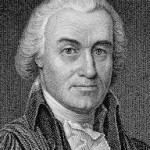“But still the people themselves must be the chief support of liberty. While the great body of the freeholders are acquainted with the duties which they owe to their God, to themselves, and to men, they will remain free. But if ignorance and depravity should prevail, they will inevitably lead to slavery and ruin.”
— Oliver Ellsworth (at the Connecticut ratifying convention, 1788)
Few Americans today know of Oliver Ellsworth. This is one product of the “ignorance” against which he warned us.
Ellsworth was one of our greatest Founders. He was Connecticut’s most respected lawyer and judge. He was a key delegate to the Constitutional Convention, and served on the committee that produced the critical first draft. (He may have been the delegate most directly responsible for the Constitution’s scheme of enumerated powers.)
After the convention, Ellsworth helped secure his own state’s ratification. He was influential nationally in the ratification debate as the author of the widely-republished “Landholder” essays.
He was elected a U.S. Senator to the First Federal Congress. Senator Ellsworth was the principal author of the legislation that constructed the federal courts. In 1796, President Washington appointed him as the third Chief Justice of the United States. He served until 1800.
 Public schools today generally neglect Ellsworth’s contributions, while highlighting those of historically less-important (but more politically-correct) figures. That’s part of the “ignorance” Ellsworth warned us about. Another factor he would point to is extension of the franchise far beyond “freeholders” (and others who contribute to society) to encompass many whose only real stake is what they grab from others by abusing government power.
Public schools today generally neglect Ellsworth’s contributions, while highlighting those of historically less-important (but more politically-correct) figures. That’s part of the “ignorance” Ellsworth warned us about. Another factor he would point to is extension of the franchise far beyond “freeholders” (and others who contribute to society) to encompass many whose only real stake is what they grab from others by abusing government power.
As for the “depravity:” Ellsworth would be unhappy with a country in which depravity, fiscal and otherwise, is now public, assertive, and mainstream. “Defining deviancy down,” as the late Senator Daniel Patrick Moynihan (D.-N.Y.) aptly phrased it.
And the result? The trend toward “slavery” (government control of all aspects of life) and “ruin” (national bankruptcy).
- The Colorado Supreme Court’s Decision Disqualifying President Trump - December 28, 2023
- The Highly Political and Misunderstood Case of Moore v. Harper - July 20, 2023
- The real Commerce Clause – as the Founders knew it - December 20, 2022
